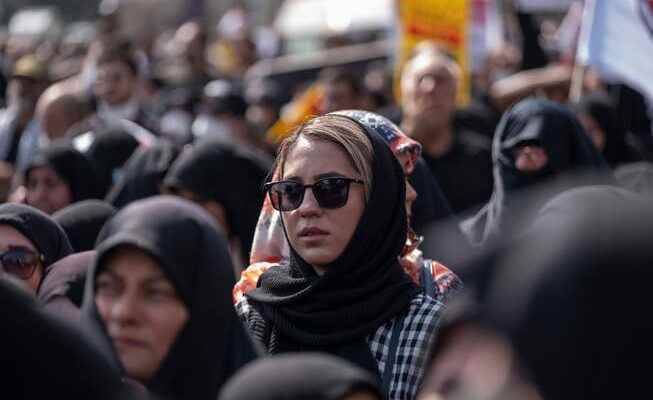As usual, the regime is cracking down on the protests of the courageous men and women. They want the world to know about their fate. The US and the EU can help – and should do so urgently.
What protesters on the streets of Tehran want above all is internet access so that the world can find out what is being done to their courageous men and women.
When Internet connections are cut off in authoritarian countries, one should fear the worst. That was the case in Iran in 2018 and 2019, when tens of thousands took to the streets against increases in food and gas prices. During the internet blackout, the security forces crushed the protests. The brutal crackdown claimed hundreds of lives and thousands injured.
The Internet has been blocked again, popular services such as Instagram and Whatsapp are blocked, and the Iranians only have partial access to mobile networks. News of the ongoing protests against compulsory headscarves is only sparse or delayed. So you have to fear the worst again.
The protests were sparked by the violent death of the young Kurd Mahsa Amini. At first they were limited to the Kurdish areas and the universities in Tehran. But then they spread like wildfire, with demonstrations even in small towns and the holy city of Qom, the center of the Shia clergy.
Many can identify with Mahsa Amini
The picture of 22-year-old Mahsa, who is fighting for her life, seriously injured on a ventilator, has moved many. It is the image of an innocent young woman who has done nothing but travel from the provinces to Tehran to enjoy a few nice days, only to fall into the hands of the religious and moral police, who charged her with allegedly indecent clothing beat to death.
President Ebrahim Raisi’s claim that it was a regrettable incident does not hold water. So many have experience with the vice squad and can identify with Amini. Any girl or woman could have been in her place. That drives so many onto the streets. The courage of the women who stand in the way of the security forces and tear their headscarves from their heads is admirable – or of the men who push the police officers back with their bare hands.
In view of this new quality of the protests, opposition figures abroad and some experts already see a regime that is beginning to falter. However, they fail to recognize that those in power still enjoy a great deal of popular support. Not everyone who takes part in official marches like Friday’s does so because they are forced or coerced to do so. In addition, the protest movements are heterogeneous.
No one should underestimate the cohesion of the regime
Three years ago it was about social issues, last year it was farmers who were suffering from the acute water shortage in some areas, now it is especially members of the middle class and young people who are demanding more freedom. Things are fermenting in Iran, no question. However, with the Revolutionary Guards and the Basij militias, those in power have forces experienced in putting down rebellions. They even stifled the “Green Movement”, which mobilized hundreds of thousands against a fraudulent presidential election in 2009. And when it comes down to it, like in 2019, hardliners and moderates move together.
The United States has imposed sanctions on the vice squad. Although these currently have no concrete consequences, they are an important signal. The EU and especially Germany, whose foreign minister is committed to human rights and women’s rights, should follow suit. But what the protesters want most of all at the moment is internet access. They want the world to know what is being done to their brave women and men. The USA and the EU can help, for example by giving them free access to the relevant satellites. They should do that urgently.
